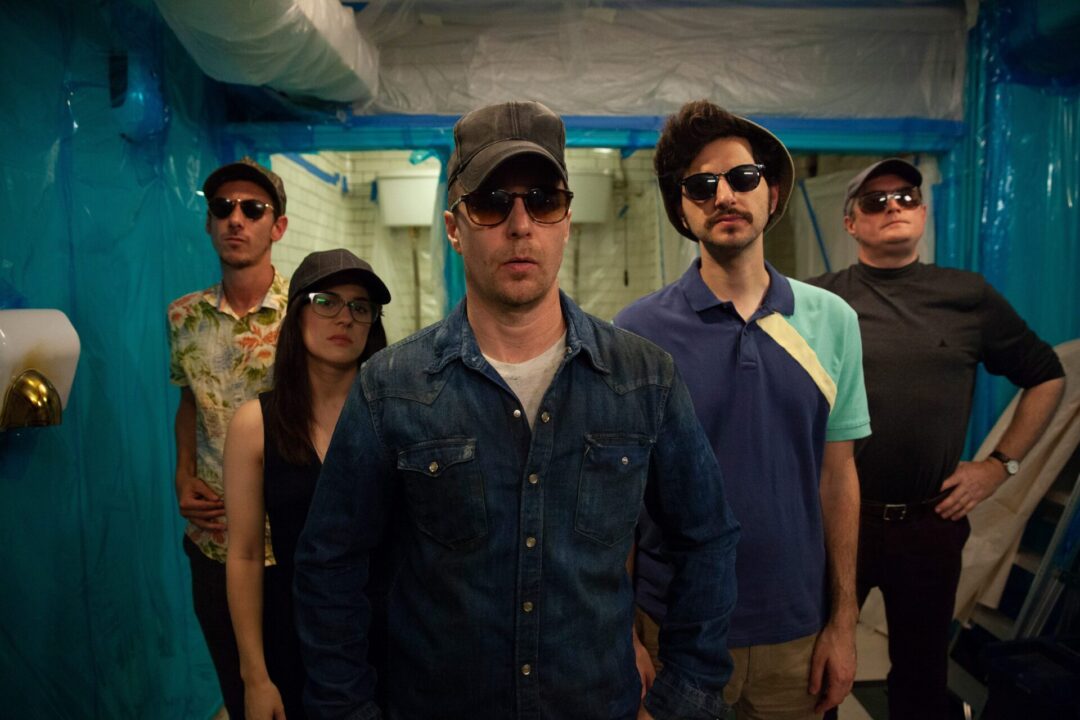Comedic-crime films and un-heroes have been a staple of Hollywood cinema since its early induction with loveable tramps and screwballs such as Charlie Chaplin and Buster Keaton.
Continuing the expansion of this cross-genre cinema, Hadi Hajaig’s Blue Iguana playfully dives into a fantastic criminal setting of a vibrant and violent London, lead by three main protagonists, all of which are a delightful blur of archetypes and new spins on the genre. It’s a fun, action-comedy heist film with a happy ending and a few darkly comedic bumps and twists along the way. These days, it’s refreshing to watch a film that provides an entertaining escape and doesn’t take itself too seriously, without baking the intelligence out of the plot.
Sam Rockwell and Ben Schwartz provide a wonderful comedic duo as the smooth n’ cool thief, Eddie (Rockwell) and the high energy of hilarious, fast-talking Paul (Schwartz). Their success is derived from their differences in comparison to their character foil, the wanna-be alpha male antagonist, Deacon (Peter Ferdinando). Deacon’s daddy-issues and mullet are brilliant representations of his outdated views of masculinity and eventually, his rage and macho manners lead to his downfall. But as Eddie reads comic books and Paul is uncomfortable with violence and wears pastels, they subvert the expectation of the dark crime world, allowing for the wheels to come loose and the comedy to ensue. One could argue that Eddie’s romantic side is what attracts him to comics and allows for him to hold on to his noble-ish self-image, while Paul’s neurotic and non-violent nature allows him to observe alternative solutions to the trials and tribulations that face the duo and the gang of thieves (both of which are essential to the ebb and flow of the narrative journey).
Just as ‘Baby Driver’ and ‘Guardians of the Galaxy’ has a steady string of sick tunes, ‘Blue Iguana’ has a soundtrack of similar quality, which has become a very good sign for a summer film.
However, the plot’s true motivations, as well as the main source of pathos and empathy throughout the film, are powered by the underestimated and incredibly intelligent lawyer, Katherine (Phoebe Fox). With Katherine, writer/director Hajaig does a play on the typical femme-fatale character. He gives the character insecurities and reveals her good intentions early on, giving the audience a different perspective of the typical crime film. As a director, Hajaig makes a choice to pay respect to the emotional journey Katherine is going through with her outstanding debt to a gangster, her feelings of guilt, and a developing romantic entanglement with Eddie. While the romance can be a little cliché, it is a satisfying conclusion for two moral characters struggling with the lonely world.
The reason the heist film still exists today is that it provides an escape for which audiences can live vicariously through characters. There are many film theorists that have discussed the idea of cinema as being a way for people to live their secret fantasies in a care-free environment. Crime films present idolized and glamorized stories for which law and order often abide chaos, destruction and violence with very little consequence for the characters- if they survive, of course. What’s most important for this genre to remain relevant are stories with different spins, unique twists, and these days, a KILLER soundtrack. Just as Baby Driver and Guardians of the Galaxy were able to take over summer music scenes with a steady string of sick tunes, Blue Iguana has a soundtrack of similar quality, which has become a very good sign for a summer film. So, if you like good tunes, times, and crimes, you may enjoy Hadi Hajaig’s Blue Iguana, in theatres August 24th.
‘Blue Iguana’ is not rated. 100 minutes. Opening this Friday at the Laemmle Monica Film Center.
Ryan Denman
Ryan is a contributing writer for CINEMACY.


